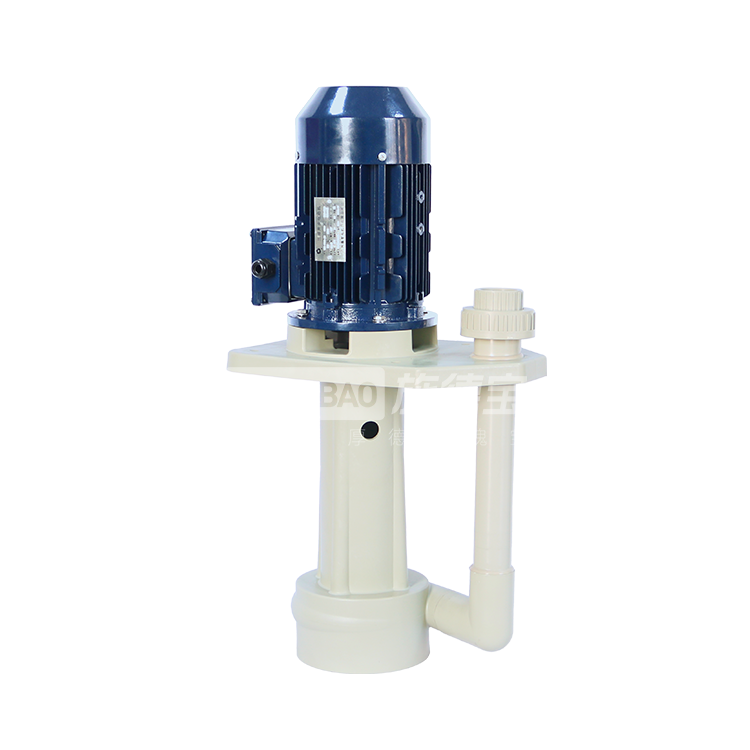Contact Us
|
WeChat
WeChat:189-2947-8410Scanning Code Contact Us

WeChat:189-2947-8410Scanning Code Contact Us


In industry, agriculture, construction and municipal engineering and other fields, vertical pumps and horizontal pumps are two widely used fluid transfer equipment, each of them with a unique structural design and performance characteristics, to meet the needs of different scenarios, however, many users in the selection of the two often do not understand the advantages and disadvantages of the two and get into a tangle. In this paper, we will analyze the advantages and disadvantages of vertical pumps and horizontal pumps to help you quickly lock the more suitable pump type, enhance the efficiency of the equipment and reduce the overall cost.

Space-saving, suitable for narrow sites
Vertical pump adopts vertical structure design, the pump shaft is perpendicular to the ground, the overall height is higher but the footprint is small, especially suitable for space-constrained scenarios, such as basements, shafts, equipment mezzanines, etc.
No need to fill the pump, easy to start
The impeller of vertical pump is usually submerged in the liquid, so there is no need to manually fill the pump or exhaust it when starting, which reduces the operation steps and maintenance costs, especially suitable for the working conditions that require frequent starting and stopping.
Adaptation to complex media
Through special materials or seal design, vertical pumps can convey corrosive liquids (such as acid and alkali solutions), sewage containing particles or high temperature media, which are widely used in chemical industry, sewage treatment and other fields.
Smooth running and low noise
Vertical structure reduces vibration transmission, low noise during operation, suitable for noise-sensitive places (such as hospitals, office building water supply system).
Limitations of vertical pumps
Higher maintenance cost
The motor of vertical pump is located above the pump body, and the whole pump body needs to be disassembled when repairing or replacing parts, which is time-consuming and technically demanding.
Restricted head
The head of single-stage vertical pumps is usually lower than that of horizontal pumps, if you need high head, you need to use multi-stage design, but it will increase the cost and volume.
Strict requirements on installation foundation
Vertical pump center of gravity is high, if the installation foundation is not level or there is vibration, it is easy to lead to equipment tilt or damage.
Core advantages of horizontal pump
Simple structure, easy maintenance
The pump shaft of horizontal pump is parallel to the ground, and the motor and pump body are arranged horizontally, so the parts are easy to disassemble, and the daily maintenance and replacement of seals and bearings are more efficient.
High head and large flow rate at the same time
Horizontal pump impeller design is flexible, single-stage pumps can achieve high head, and a wide range of flow rate, suitable for long-distance water transmission or large flow demand scenarios (such as farm irrigation, fire-fighting system).
Strong stability and long life
Horizontal pumps have a low center of gravity, low vibration during operation, lower requirements for the installation foundation, and better long-term operational stability and durability.
Cost-effective
Horizontal pump production process is mature, high market penetration, the same parameters under the purchase cost is usually lower than the vertical pump.
Limitations of horizontal pumps
Large footprint
Horizontal pumps need to be installed horizontally, occupying more space, with higher requirements for site layout, which may require additional planning for the equipment room.
Need to fill the pump before starting
Horizontal pump impeller is usually higher than the liquid surface, the first time to start or after a long period of time out of service need to manually fill the pump exhaust, otherwise prone to cavitation damage to the equipment.
Relatively high noise level
Horizontal pump operation vibration transmission is more direct, the noise is slightly higher than the vertical pump, need to be optimized through the vibration damping pads or sound insulation measures.
According to the advantages and disadvantages of the above comparison, selection can focus on the following dimensions:
Space constraints: narrow site selection of vertical pumps, ample space selection of horizontal pumps.
Media characteristics: conveying corrosive liquids or sewage preferred vertical pumps; water, oil and other common media can choose horizontal pumps.
Maintenance frequency: the need for frequent maintenance of the scene (such as chemical workshops) is more suitable for horizontal pumps.
Budget control: limited budget and flow demand, the horizontal pump is more cost-effective.
Vertical pump applicable scenes:
✅ High-rise building water supply system
✅ Underground sewage lifting station
✅ Chemical industry corrosive media transportation
✅ Cooling tower circulating water system
✅ Agricultural irrigation and drainage
✅ Cooling water circulation in industrial plants
✅ Fire fighting water supply system
✅ Oil storage and pipeline transportation
Vertical pumps and horizontal pumps have distinct advantages and disadvantages, there is no absolute advantage or disadvantage, only applicable or not. Users need to be combined with their own needs, budget and maintenance capabilities of comprehensive consideration. If the pursuit of space-saving and complex media adaptability, vertical pumps is the ideal choice; if more important to the ease of maintenance and high-flow performance, horizontal pumps are more advantageous.
Choose a professional brand and after-sales service is equally important! It is recommended to consult the technical team before purchasing, to obtain customized selection program, to ensure that the equipment long-term efficient operation.
